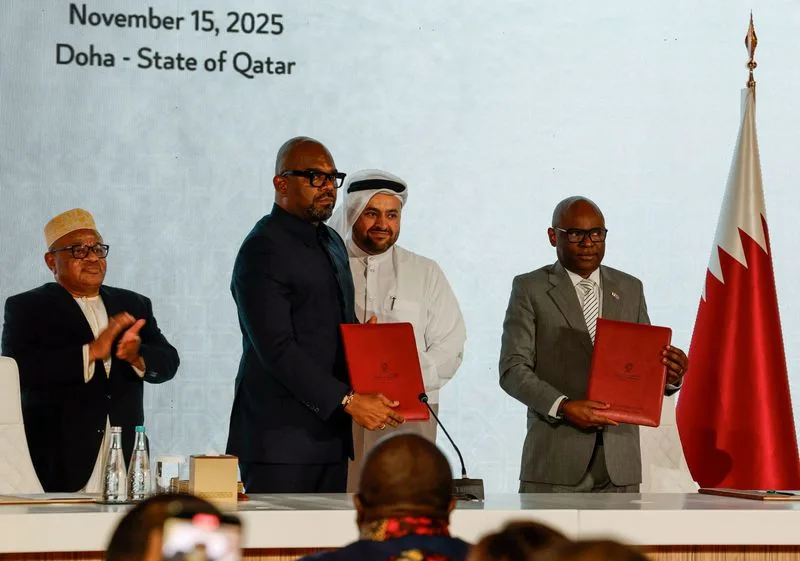
The Democratic Republic of Congo and the M23 rebel group on Saturday signed a framework laying the groundwork for a future peace deal aimed at ending fighting in eastern Congo that has killed thousands of people and forced hundreds of thousands more from their homes this year.
Representatives of both sides signed the document at a ceremony in Doha, the capital of Qatar.
The accord is the latest in a series of documents concluded in recent months as part of U.S.- and Qatari-backed efforts to resolve Congo’s decades-long conflict, which has repeatedly risked spilling over into a broader regional war.
U.S. and Qatari officials hailed the framework as a significant step towards peace, while stressing it was only one stage in a long and fragile process.
DETAILS OF EIGHT-PROTOCOL FRAMEWORK STILL IN FLUX
Massad Boulos, the top U.S. envoy for the region, told Reuters the framework comprises eight protocols, and said the parties still need to agree on how to put six of them into practice.
He also acknowledged that progress has been sluggish on implementing the first two protocols, which cover prisoner exchanges and mechanisms to monitor a ceasefire that were agreed in recent months.
“Yes, they were a little bit slow in the first few weeks,” he told reporters after the signing. “Yes, people were expecting to see probably some immediate results on the ground, but this is a process… This is not a light switch that you just switch on and off.”
In the latest phase of the conflict, M23 — in what Kinshasa and Western governments say is the newest in a series of operations backed by neighbouring Rwanda — seized Goma, eastern Congo’s largest city, in January and went on to advance across North Kivu and South Kivu provinces.
Rwanda has repeatedly denied accusations that it supports M23, which now controls more territory in Congo than at any point in its history.
VIOLENCE PERSISTS DESPITE DIPLOMATIC PUSH
Despite the diplomatic track pursued in Washington and Doha, violence on the ground has continued. On Friday, local officials in eastern North Kivu province reported that up to 28 people were killed in an attack blamed on militants allied with Islamic State.
Qatar has hosted multiple rounds of direct talks between Congolese officials and M23 representatives since April, though discussions have largely focused on preconditions and confidence-building measures.
In July, the two sides signed a declaration of principles that left many of the core drivers of the conflict unresolved. In October, they reached an agreement on monitoring a future ceasefire.
Qatar’s Minister of State for Foreign Affairs, Mohammed bin Abdulaziz Al-Khulaifi, said Saturday’s framework set both parties on a course towards ending the war.
“Peace cannot be enforced by force, but is built through confidence, mutual respect and sincere commitment,” he said.
